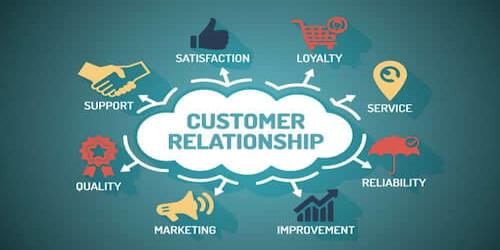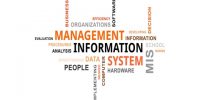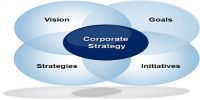Customer Relationship Management (CRM) is a strategy for managing an organization’s relationships and interactions with customers and probable customers. The goal is simple: Improve business relationships. It helps companies stay connected to customers, streamline processes, and improve profitability.
Benefits of Customer Relationship Management (CRM): There are many benefits of CRM. Some are as follows –
(1) Helps identify and target best customer: CRM allows a business to identify and target their best profitable customer. So that they can be retained as lifelong customer.
(2) Helps real-time customization and personalization: CRM makes possible real-time customization and personalization of products and services best on customers wants, needs, buying habit and life cycle.
(3) Keeping customer records: CRM helps keeping accurate up to date customer detain records noting any change of address or telephone numbers.
(4) Tracking all customer contacts: CRM helps tracing all customer contract that is essential for the smooth and effectiveness running of a successful business.
(5) Creating customer center targeted marketing: CRM helps creating customers center target marketing get the very most from any marketing campaign it should be targeted.
(6) Running process from one single software program: When a business uses a CRM software program there is no need to other program.
(7) Creating invoices and quotes: CRM helps creating invoices and quotas and customers quickly that enhance their confidence.
(8) More Administrative Support: Even in sales, there are mundane tasks that simply have to get done. Scheduling appointments, keeping records up-to-date, tracking follow-ups all critical functions in any sales team, but ones that require careful (and tedious) attention to detail.
(9) Competitive Advantage: If the company can operate CRM more efficiently and gain more customer insight then its competition then it is at an advantage.
(10) Better Coordination and Cooperation: When sales, marketing and customer service share a common CRM platform, they are able to speak the same language with one another. Rather than being separated by systems functionality or access to key information, departments across the organization are able to function more cohesively. Suddenly, they have what they need to work as a single unit. They know what the goals are and how to attain them. A CRM can manage to day-to-day administrative tasks for you, giving your sales team the chance to get back to; well, selling.
More Administrative Support
Even in sales, there are mundane tasks that simply have to get done. Scheduling appointments, keeping records up-to-date, tracking follow-ups all critical functions in any, sales team, but ones that require careful (and tedious) attention to detail.













